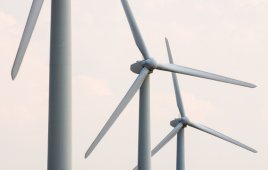The U.S. Environmental Protection Agency recently issued its plan for establishing greenhouse gas (GHG) pollution standards under the Clean Air Act in 2011. The agency looked at a number of sectors and is moving forward on GHG standards for fossil fuel power plants and petroleum refineries—two of the largest industrial sources, representing nearly 40% of the GHG pollution in the United States.
“We are following through on our commitment to proceed in a measured and careful way to reduce GHG pollution that threatens the health and welfare of Americans, and contributes to climate change,” Administrator Lisa Jackson said. “These standards will help American companies attract private investment to the clean energy upgrades that make our companies more competitive and create good jobs here at home.”
Several states, local governments, and environmental organizations sued EPA over the agency’s failure to update the pollution standards for fossil fuel power plants and petroleum refineries, two of the largest source categories of GHG pollution in the United States. Under the agreement, EPA will propose standards for power plants in July 2011 and for refineries in December 2011 and will issue final standards in May 2012 and November 2012, respectively.
This schedule will allow the agency to host listening sessions with the business community, states, and other stakeholders in early 2011, well before the rulemaking process begins, as well as to solicit additional feedback during the routine notice and comment period. Together this feedback will lead to smart, cost-effective and protective standards that reflect the latest and best information.
The Clean Air Act requires EPA to set industry-specific standards for new sources that emit significant quantities of harmful pollutants. These standards, called New Source Performance Standards (NSPS), set the level of pollution new facilities may emit and address air pollution from existing facilities. The Act allows flexible and innovative approaches that take into account cost, health and environmental impacts, and energy requirements. EPA must also periodically update these standards to reflect improvements in control technologies.
EPA www.epa.gov
Filed Under: Policy




